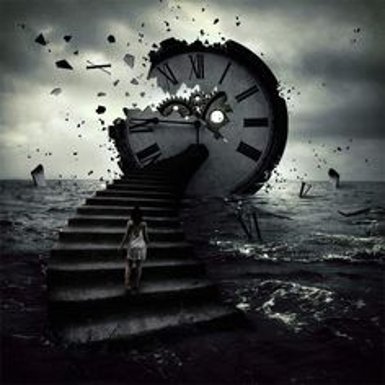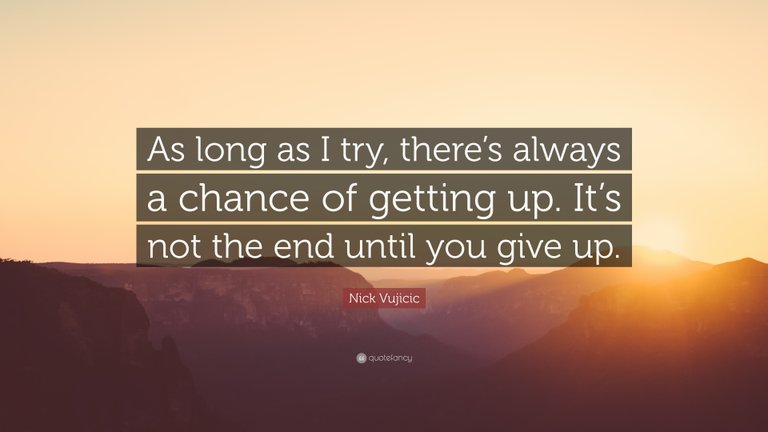The Battle from Within

-Only the dead have seen the end of war- Plato
In the year 1519, the voyage of Hernán Cortés and his 600 hundred men had finally ended as their ships arrived on the shores of Mexico. Cortés knew that the odds were against them because they had only a modest amount of resources, as well as military force, but he was nonetheless determined to make this his next conquest. Mexico had not been conquered for 600 years before Cortés arrived, and both he and his crew knew it, but that didn't stop him from giving the order to have the ships set ablaze and burned to the ground. Cortés didn't give his men a speech like he would have on other undertakings because the state of affairs was already clear to all of the men. Once the captain's orders were carried out, there was no going back. Once the boats had been reduced to searing ash, the crew's only escape route would be death. There were only 2 possibilities from that point on and those were to either be victorious, or die.
When an animal is ensnared in a trap and cannot free himself, it's advisable to approach him with caution because this is when he is most dangerous. Even if your intention is to set him free, he will claw out your eyes in attempt to escape. He is uninterested with the meaning behind your actions because he has become so absorbed within his own impulse to escape, that he'll do it at all costs. The will to survive runs deep within us all and it comes out the strongest when we are threatened. In times of war, suicide rates actually drop because we become aware of the dangers that surround us and as a result, that urge to survive awakens. We feel compelled to push ahead more when our lives or freedom are in jeopardy of being taken away because there is an inner resilience that drives us to fight back. Having that feeling of "do or die" is what inevitably caused Cortés and his crew to valiantly pull through to conquer the unconquerable. They were the only group capable of taking over Mexico for centuries before them and it's all because they were willing to put themselves into a position where failure was no longer an option.
In today’s age, we rarely use swords or a bow and arrow anymore for anything other than novelty purposes, because we live in what we call a more civilized society. Our warfare has become less frequent and we have swapped out our rudimentary arsenal for sophisticated weapons that withdraw us from close proximities of other countries. We have distanced ourselves from the brutality of our ancestors in attempt to appear more socialized and polished. Food became more abundant and disease runs less rampant. At one point, life became less threatening and we became introspective. We were able to focus more on our lifestyles in regard to our social relationships, careers, and possessions, because we no longer have to focus on a means to survive. Although there is an appeal to no longer having to defend our homelands from possible conquering, we suffer the effects of a completely different kind of threat. Even though new discoveries in technology has made our society as a whole, stronger, its individuals have become weaker. Without that feeling which drove our society to where it is today, deeply rooted in our conscience and everyday mind, we take a less active role in our own destiny. That urge to survive has fallen back asleep taking our ambition with it.
The Cat and the Mouse

Think about a mouse running away from a domestic cat. The chance that the cat will succeed in catching the mouse depends on how hungry the cat is. The mouse will always exert all of his effort to flee because if he gets caught, it's his life. If, however the cat fails to trap the mouse, it's only his dinner. If the cat isn't hungry, it's no real bother to him whether or not he eats because he is only concerned with how he feels for the moment. A cat does not consider the food from today being saved for tomorrow because it's not in his nature to think this way. If no other mouse crossed his path, he wouldn't seek one out until it was time to eat. If he could not find food for that day, then he would starve because he was designed to be skillful at hunting, but poor at hording. His ability to survive depends on his ability to act, but he will only act when he needs to, because he doesn’t consider the future.
The human mind is much different than a cat, because unlike our feline friend, we have the capability to look ahead and make decisions that won't affect us for years to come. The outer most regions of our brain have developed favorably over time, allowing us to predict, ponder, imagine, and reason which animals aren’t as capable of doing. It is one of our greatest abilities as a species by far, but in spite of this gift and our sophisticated society, we still tend to behave as if we were no different from the cat. We live for today and put off what can be done for tomorrow, and in turn, often find ourselves in situations where we are stressed to act lest we suffer. We have become prone to react to our environment rather than to actively create it. Even though our minds are designed for foresight and we are able to plan for our future needs, we still seem to follow the path of a wild animal and only act when it's necessary. Our lives have become so comfortable that as a result, we have become complacent. There is no longer a sense of urgency because surviving has been taken for granted. It’s true that we may feel content for the moment, but that inner desire to command and conquer is still deep within us, trying to express itself any way it can. As we ignore this instinct for too long, we’re left feeling like something is missing in our lives. Unfortunately, we either forget about, or suppress this necessity to thrive because we don't have enough fire from within us to do anything about it, especially if it involves stepping past the lines of social acceptability. In fear of losing what we think we have, we dare not act unabashed. Our innermost aspirations are squashed and our burning desires are stamped out as we continue to live a life of diplomacy and all the while our spirit fills with despondency. We may no longer have to defend ourselves from being killed, but that doesn't mean that we still aren't under attack. Even in today's age, we need to fight for our lives because we are at war with ourselves and we don't even know it.
Our Greater Self

"You may delay, but time will not." is probably one of the best pieces of wisdom that Benjamin Franklin has ever given. Although you have the power to remain still and refuse to progress, the world will not cease to spin on account of your decision. The world will continue to evolve and civilizations will continue to develop regardless of your individual contribution, but the fulfillment behind your own life can only be established through your own individual participation. Some are masters of their own fate and others merely live day by day, allowing it to unfold as it will. They will surely be born and will eventually die, but what happens to them between those two doorways is a mystery that only they, themselves, can determine. We are not a collective group. Rather, we are individual beings with individual desires and ambitions. Our ability to choose to stand still in the river of time cannot be taken from us, but that doesn't mean we should execute our right. How could choosing a path of indifference, void of any ambition, ever benefit us anyways? Perhaps it will give us a life we wished we would have lived, but didn’t? Maybe it will bless us with missed opportunities and regrets? The tides of change that are created from the whole can rarely fulfill the needs of the individual. Where we end up is not a product of society, but rather the decisions which we have made. The internal battle we all face can't possibly be won until after we have accepted our responsibility as being a creator of our own life and therefore a creator we must become.
The Time is Now

Time is one of our worst enemies. It has the tendency to fool us into thinking that we have more of it than we really do. The more of it we have, the less we seem to get done. It may seem counter intuitive when you first think of it this way, but when we have the luxury of time, we tend to squander it because the consequences of the waste aren't always apparent until we reflect on them later. This makes it exceedingly more dangerous than consciously wasting time, because it fools you into thinking you are accomplishing something when really you aren't. It's too easy to attribute your delay as calculating your next move when realistically, you could have just as well made a clear decision with a fraction of the time or no time at all. At least when you are aware of what you are doing, you have the ability to change it, but the non-threatening nature of the subtle, yet frequent waste of time, creeps in from the shadows and overwhelms its victim slowly like a silent killer. What could very well have been the greatest discovery in history, that was held as a seed in the mind of a man, ends up being locked away in a casket and buried beneath us never to be witnessed. What could have brought incredible benefit to the world would have been forever frozen in time in its most useless idealistic form. Benjamin Franklin was very clear when he gave us his timeless wisdom and it's in our best interest to heed his warning because even though we may all one day die, the greatness inside us all doesn't have to share that same fate.
Each one of us, indisputably has a greater version of ourselves just waiting to be expressed. It may only be one more book that you have to read or one more lesson that you need to learn, but the gap between being incompetent and incredible is surprisingly smaller than you might think. The greatest people in history were not in their position because of entitlement; they were built over time through deliberate practice and effort. Whether or not we achieve that status is completely dependent on the actions that we take and how we choose to spend our time. The biggest misconception that a person could have is believing that some people just don't have what it takes to be successful or that some of the most successful people gain their status due to luck. The biggest problem with this type of thinking is that it creates an invisible barrier between people and their dreams and gives the illusion that some people just have it in them to succeed and others don't. People have been fooled into thinking that failure and success just happen rather than becoming aware that it is really the result of several decisions that have been made over a long period of time that has created those situations. Failure and success don't just fall out of the sky onto people's laps; they are the result of several small choices that that person has made over the course of their life and is the direct fruit of their labor. If someone doesn't see themselves as being competent in the moment, what’s to say that they will ever think they will be competent in the future? People becoming incredible doesn’t need to be any more difficult than the future becoming the present.
This Day

There is no definite time where things change and we are, all of a sudden, living new lives. Things are changing in every moment, but there seems to be some sort of disconnection between people's understanding of their actions and their results. I've personally known a couple people who have had serious complications from alcohol abuse, but insist on still drinking on special occasions. I have met diabetics that will still eat cake for dessert at birthday parties and then attempt to compensate for their raised blood sugar by increasing the dose of their insulin. I can't even tell you how many people have told me that they are planning on quitting smoking as they bring their cigarette to their mouth and light up. At what point did "today" no longer get added into the equation when someone is considering their future? If they aren't capable of showing restraint right now, on this day, how can they assume tomorrow will be different? The phrase "carpe deim" taken from Horace's work "Odes," which translates to "seize the day," is referring to this day, not another. Today is the day which needs to be conquered, not tomorrow. Our greatest power we have over our future is what we do now because there is no other way to affect what will happen to us than our own actions. If we don't partake in this responsibility, we will stop creating our future and instead, it will just happen to us.
It’s important to actively participate in your own life to create your future. Yes, it will take effort, but this doesn't mean that it has to be a burden. In fact, it's more of a blessing than anything else. It means that who we are today isn't bound by who we were yesterday. It means that if you want to start a brand new life right now, it can be done in an instant. Society has always frowned on the idea of inconsistency because most people like to cling to stability. The idea of a person being amorphous is a scary idea to somebody who is infatuated with the concept of consistency, but nonetheless, it's only a social guideline, not a rule. Gandhi once stated that he follows truth and not constancy, therefore his consistency changed with truth. He believed that society had an irrational commitment to the idea of being repetitive and predictable. It's no surprise that he was one of the most powerful and influential people who have ever walked on the face of the earth and that the government genuinely feared how much influence he had over the people who believed in him. His mind was flexible; he accepted everything as it was, but knew that what he did in the moment, would lead to where he would eventually be in the future.
Unlike Gandhi, most of us cling an identity and refuse to allow ourselves the ability to act outside of that construct. We choose consistency over truth and become so blind to the notion that we might be wrong, that we live in the darkness until we arrive to it through death. In the duration, we forget that there is a contribution to be made today, if we ever want to progress to somewhere beyond where we are now. Our futures, literally fall into peril every time we lose sight of that, and when we fail to make our contribution. It's all too often that I hear an elderly person say that time has flown by and how their dreams were left behind in their youth. Time has stolen their ambitions and they didn’t even consider putting up a fight. The threat of losing their future didn’t seem like a threat until after it was already gone. The end of your years isn't the time you'll want to be reminded of all the things you wished you had done. The golden years would be much better spent continuing to build from the foundation you had started in your youth and to instead be reminiscing about all of your previous accomplishments; all of the things that you were proud to be a part of. We all dream of what a perfect life for us would entail, but how many of us can really say we are there right now?
The Tragedy Of the Lost Life

My mother lived an entire life of what she considered misery. She told me that my sister and I were the only part of her life that she was proud of, but aside from that, she didn’t feel like she had much of a life at all. She felt trapped because she was unhappy with her marriage, but was too stubborn to get a divorce because it was against her religion. Her mother always tried to control her life which she resented, but would never speak up for herself because she didn't want to cause problems. She had a problem with smoking and poor diet, but was afraid that when she tried to take control over one, the other one would get worse. She was always stressed, always drained, and her muscles became so tight over the years that she was always in pain. She just wanted to be able to do something that would give her life meaning. When she did finally get the courage to break free and start over the way she had wanted to for all those years, she was diagnosed with cancer and died shortly afterward. She had reached a point in her life where she was so fed up with her situation, that she finally did something about it, but by that time, it was too late. All of her pain and regrets that she had accumulated over the course of her life had already torn her up from the inside and it inevitably destroyed her. She waited until the end of her life before she was ready to contribute to her future, but it couldn’t possibly indemnify all those years she allowed to slip by. There wasn’t enough time for it to matter. She lived her life in the image of consistency, and because she wouldn't allow herself to become more flexible earlier on, like a dead branch, she broke. Life is too precious to allow it to be taken away without fighting back. If only we could grow with our dreams always intact as we pass into adulthood, never forgetting our passion. If only we could all be as flexible as the passing days require and gently remind ourselves that when things get rough, today is not forever. Just imagine how much power we really have when we seize this day.

Thank you to everyone reading this, and Happy Steeming!
Great post
Great write-up. A good blend of historical, philosophical and psychological lessons for readers. One great lesson here is when you said 'The will to survive runs deep within us all and it comes out the strongest when we are threatened.'
This is when the mind really takes over. In life, the battle for survival is won and lost in the mind.
Thanks for sharing.
Thank you, I appreciate it a lot.
beautiful
@OriginalWorks